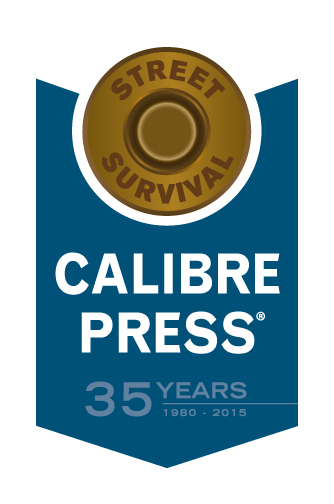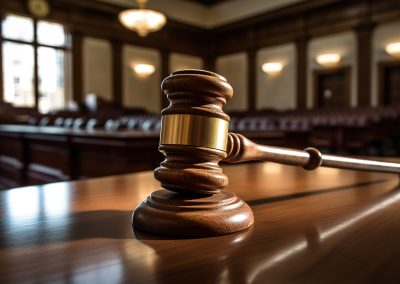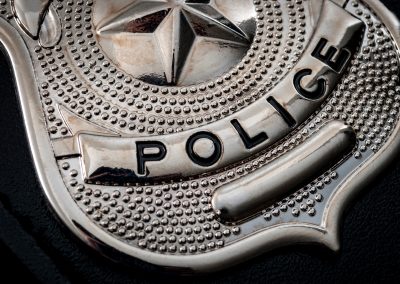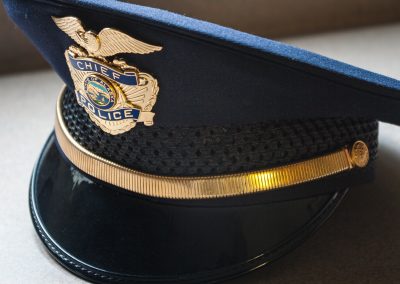I penned an article over a year ago titled “Stop Working.” It was misunderstood by those who only read the first few paragraphs or maybe just the title. I certainly wasn’t advocating that cops stop doing their jobs. I was responding to the constant and incessant screaming about police abusing their authority in epidemic proportions, from physical abuse to the much hated and even more misunderstood Stop-and-Frisk program.
I wrote:
“I know how to resolve this issue about police officers using these gestapo-like stop-and-frisk tactics in New York.
And it really wasn’t difficult to figure out. In fact, it was pretty obvious. A Win-Win! Nobody’s feelings hurt. No accusations against the cops. No questions about civil rights being raised. It’s perfect! I’m a genius!

FREE WEBINAR: Jim Glennon on the Guardian-Warrior. Transform your agency, regardless of your rank. June 1. Register now!
Here’s the solution so pay attention. Got a pen? Write this down. Ready? Here you go …
Stop working.
Huh? Yep, don’t do a thing. There’s no downside. You won’t—and in fact you can’t—get fired for doing nothing. Lack of initiative isn’t grounds for discipline.”
Now I was obviously being sarcastic. I didn’t advocate in any way a work stoppage. It was actually meant to be a warning to the public we serve, that they might just get what they claim to want. I was trying to point out that police officers are human beings with feelings and emotions. Being maligned as a group is eventually going to take its toll on the psyche of any profession, cops included.
So I tried to explain and issue a warning:
“PLEASE UNDERSTAND THIS CITIZENS: Police officers don’t have to work in order to get paid!
Yeah, they have to show up, answer calls, write some tickets, but there is virtually no external motivation for them to initiate and be proactive. That comes from within, from a place only they understand. A place that compels them to stop the bad guys before they hurt others, even when they know it could damage their own careers.
I believe this: Keep demonizing the police, call them names, assign ill-intent to their motivations and they’ll eventually get the message. They’ll do what you want—NOTHING! And then what?”
Well, then what may be here. And it may be beginning in Baltimore.
Crime in Baltimore
Over this past Memorial Day weekend approximately 30 people were shot in the City of Baltimore. Nine of them died. Officials say that it is the deadliest month the city has seen since 1999. There have now been over 100 murders in that damaged city this year. Over 30 more than at the same time last year.
Politicians are obviously alarmed. Baltimore city councilman William Welch described the situation as “deplorable.” He added: “I’ve never seen anything like it.”
Baltimore Mayor Stephanie Rawlings-Blake’s said she is “disheartened and frustrated” by the spate of violence and added that it is “unacceptable and will not be tolerated.” She met with Police Commissioner Anthony Batts to discuss the department’s strategy for adjusting to the breakout of bloodshed in the neighborhoods.
After that meeting the mayor’s office reiterated that she is “confident that the steps being taken by the police department will quell this latest uptick in violence.”
The mayor has confidence in her police department? Hmmm … That’s quite a departure from what she said a little over a month ago.
“…those of you [Baltimore police officers] who want to engage in brutality, misconduct, racism and corruption, let me be clear: There is no place for you in the Baltimore City Police Department.” She furthermore pledged to “continue to be relentless in changing the culture of the police department.”
Her word choice is telling: culture. And that culture, according to her, is corrupt, brutal, and racist. She then called in the Department of Justice to investigate systemic problems in the department.
According to many, during the riots she gave an order for the police to stand down while the burglars (not looters) were breaking into buildings and stealing the property of law-abiding citizens, arsonists were setting fire to the property of law-abiding citizens, and rocks were being thrown at police officers. More than 20 were injured and required a hospital visit.
Since the riots, burglaries and rock throwing made national news and the DOJ started their investigations, many citizens of Baltimore have continued demonizing and threatening police officers.
Van loads of police officers have to routinely guard their union hall as protesters demonstrate and demonize the cops who would gather there.
Police officers who arrive to investigate crimes regularly call for back-up as they are overwhelmed with citizens screaming and threatening them.
Police officers on the west side of Baltimore are routinely surrounded by groups of hostile residents screaming obscenities and using cell phones to record their activities. This has required officers to have additional back-up for basic police calls.
So with violence on the rise the latest debate among the political class and news pundits is about whether police officers have begun to stop working.
Commissioner Batts obviously says it isn’t happening, saying his officers have “hearts of lions.” He went on to assure the public that despite six officers being indicted and 168 others injured in the riots, he‘s confident that the force will continue to do its job.
I’m not going to argue with the commissioner, but I don’t think it‘s as simple as all that.
At least one anonymous Baltimore officer told a reporter that they are answering calls and doing the basics, but proactive police work is down, as are arrests (half what they were before the riots, according to department data).
Marc Lamont Hill, a purported intellectual, was on CNN a few weeks ago and said that he knows some “great police officers” exist “at the individual level.” But then added this: “It’s something about the job itself and the structure of law enforcement in America itself that becomes an occupying force and— they’re an occupying force in the hood. That’s my issue.”
An occupying force?
Conclusion
And we circle back to my point I made over a year ago: Proactive police work is the difference between chaos and order. Officers work certain areas because that’s where the crime is, that’s where the evil-doers victimize the helpless and that’s where the citizens demand their presence.
The best cops stop, investigate and sometimes frisk.
The best cops volunteer to go in those areas and spend their days trying to stop criminals before they commit crimes.
The best cops care and act on their caring.
And the best cops are the most vulnerable to complaints.
And: Even the best cops have their limits.
They learn from the media, the citizens, the criminals, the politicians and even some administrators that they would be better off personally and professionally to do less. Again, there’s no downside for the officer. They will get paid, stay safer, go home earlier and never get fired for doing the absolute bare minimum. Hell, they may get promoted.
But then what happens to those that need them the most. Ask the citizens of West Baltimore.










0 Comments